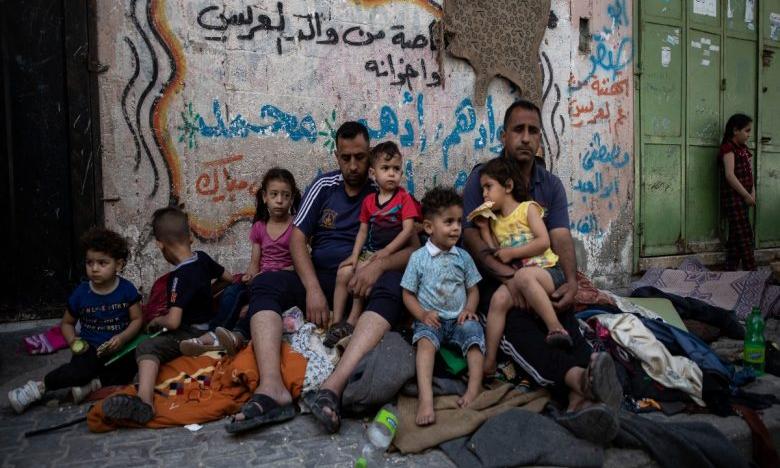
Trauma grips Gaza's children in the face of Israeli bombardment
text_fieldsIn the war-torn region of Gaza, where conflict has become a grim reality for generations of children, a recent surge in trauma cases among the youngest victims has raised alarm. Over the past 16 days, Israeli forces' bombardment has claimed the lives of 1,750 children, averaging almost 110 fatalities daily, according to the Hamas-run health ministry.
The toll extends beyond the tragic loss of life, as a Palestinian psychiatrist, Fadel Abu Heen, notes an escalating psychological crisis among the children. These young minds, constituting half of Gaza's 2.3 million population, are grappling with severe trauma symptoms, including convulsions, bed-wetting, fear, aggressive behaviour, and nervousness.
The ongoing bombardment has left them without any safe haven, fostering a pervasive sense of fear and horror that affects the entire population, with children bearing the brunt.
Families, seeking refuge in UN-run schools, describe harrowing scenes of children crying throughout the night and unintentionally wetting themselves due to the distress. The lack of access to basic necessities, such as food and clean water, exacerbates the plight of these children.
Remarkably, the impact is not confined to Gaza alone. Israeli children, too, exhibit signs of trauma since the onslaught began on October 7. Zachi Grossman, chair of the Israeli Pediatric Association, speaks of a "tsunami of anxiety symptoms" among children, with around 90% reporting anxiety during hospital visits—an unprecedented phenomenon in the region.
For the children in Gaza, this marks the fifth intense bombardment in their lifetime, spanning from 2008-2009 to the current crisis in 2023. Previous studies conducted after conflicts revealed alarming statistics, with a majority of children exhibiting symptoms of post-traumatic stress disorder (PTSD).
In the aftermath of Operation Pillar of Defence in 2012, UNICEF reported that 82% of children were in constant fear of imminent death.
The recurring trauma has far-reaching consequences on children's mental health, manifesting in various ways: sleep disturbances, nightmares, appetite changes, anger, insecurity, guilt, and psychosomatic symptoms like fever and rashes.
A report by Save the Children last year highlighted the long-term impact of 15 years of blockade and repeated conflicts on the mental health of Gaza's children. The findings painted a bleak picture of psycho-social well-being, with children expressing fear, nervousness, anxiety, stress, and anger.
Their grievances ranged from family problems and violence to death, poverty, war, and enduring occupation.
The UN Secretary-General, António Guterres, captured the gravity of the situation, describing the lives of Gaza's children as "hell on earth."























